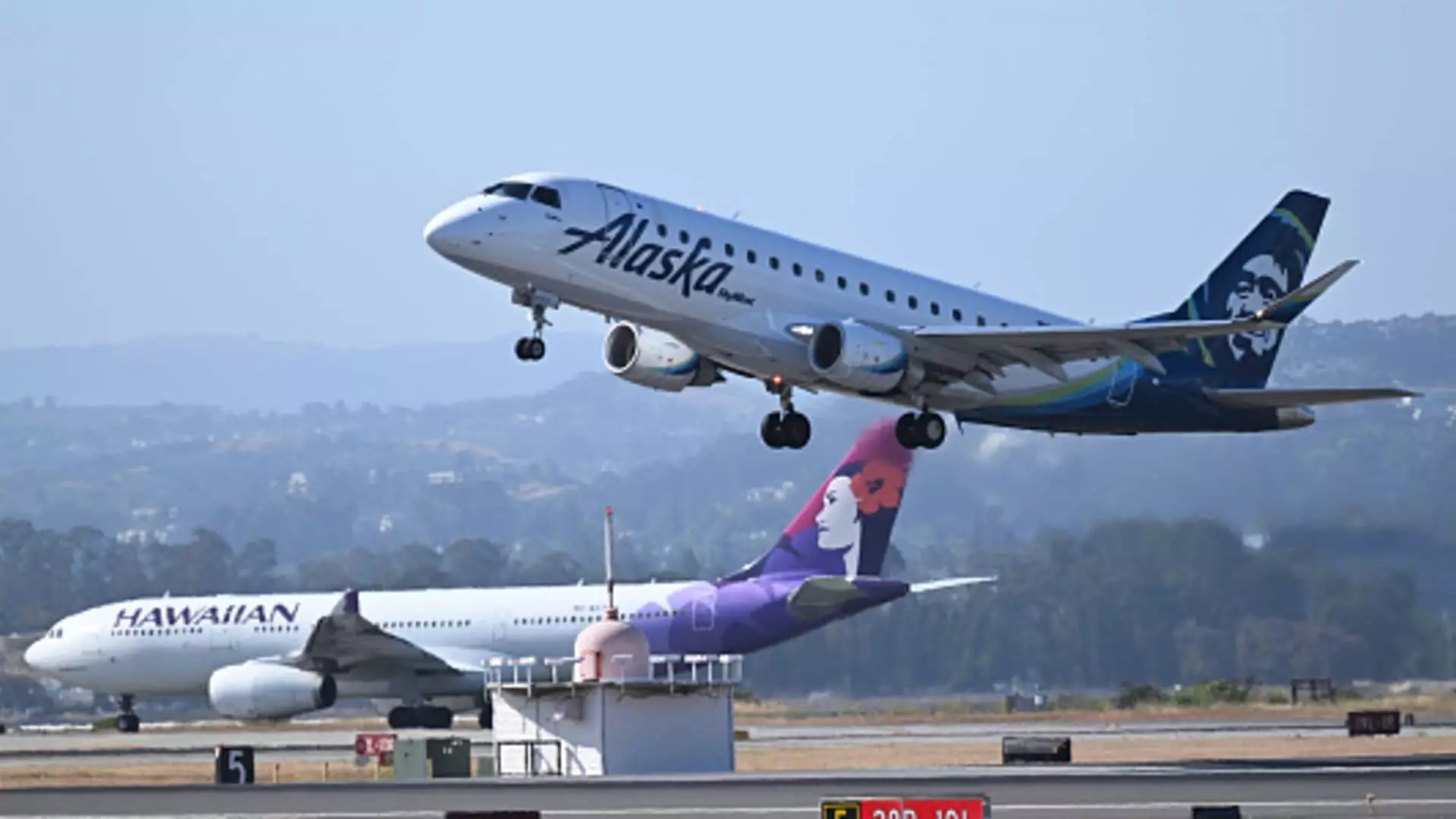Alaska Air Group has recently announced its decision to acquire rival carrier Hawaiian Airlines in a monumental $1.9 billion deal. This acquisition marks the second proposed airline merger within the last two years, thus initiating another potential regulatory battle. Under the agreement, Alaska Air Group will pay $18 per share for Hawaiian Airlines and take on $900 million of its debt. Although the Hawaiian Airlines stock closed at $4.86 on Friday, reflecting a market capitalization of approximately $250 million, this year has seen a significant decline of nearly 53% for the company.
Hawaiian Airlines has encountered several challenges in recent years, including the devastating Maui wildfires, intensified competition from Southwest Airlines, and a slow recovery of travel to and from Asia following the global pandemic. These difficulties have resulted in consistent net losses for Hawaiian Airlines, with only one profitable quarter since the beginning of 2020. In contrast, Alaska Airlines and other carriers have experienced more stable financial performance as the pandemic recedes.
Shane Tackett, the CFO of Alaska Airlines, expressed that this acquisition was seen as a unique opportunity to acquire Hawaiian Airlines at an advantageous valuation. He also highlighted the potential for the combined companies to become a dominant force in the premium-travel Hawaii market. Despite the proposed purchase price of $18 per share, Hawaiian Airlines’ stock surged 180% to $13.57 per share in morning trading on Monday. On the other hand, Alaska Airlines saw a decline of 17% in its shares during morning trading.
The airline industry has witnessed substantial consolidation in recent years, resulting in four major carriers, namely American, United, Delta, and Southwest, controlling approximately 80% of the U.S. market. However, the consolidation has faced resistance from President Joe Biden’s Justice Department, which has actively opposed mergers and acquisitions within the industry. The Justice Department recently won a lawsuit to dissolve the regional partnership between JetBlue Airways and American Airlines, and it also filed a lawsuit to block JetBlue Airways’ proposed acquisition of Spirit Airlines. A trial to determine the outcome of the latter case is expected to conclude soon.
Hawaiian Airlines and Alaska Airlines anticipate the transaction to be finalized within the next 12 to 18 months, subject to approval by regulators and Hawaiian’s shareholders. Despite potential regulatory challenges, Alaska CEO Ben Minicucci expressed confidence in the deal’s approval, citing numerous overlapping markets, a combined fleet of 1,400 daily flights, and an expanded network that would enable the airline to compete more effectively with the four largest carriers. The Association of Flight Attendants-CWA, representing cabin crews from both airlines, stated that their support for the merger would depend on whether it improves conditions for flight attendants, paralleling the benefits described for shareholders and consumers.
The resulting merged company will be headquartered in Seattle, Alaska Airlines’ base of operations, and will be led by Ben Minicucci as CEO. The brand identities of both carriers will be maintained, although they will operate under a single platform with a combined fleet of 365 airplanes, serving 138 destinations. Remarkably, Alaska Airlines’ acquisition of Hawaiian Airlines will introduce a complex mix of aircraft, including Boeing and Airbus jets, narrow-body and wide-body planes, amplifying the diversity of Alaska Airlines’ fleet. Hawaiian CEO Peter Ingram emphasized the importance of the Hawaiian brand and the expanded service for Hawaii residents, with Honolulu becoming a strategic hub for the combined company. This union will also enable Alaska Airlines to significantly increase nonstop or one-stop flights from the Hawaiian islands to various destinations throughout North America while incorporating Hawaiian’s long-haul flights to and from Asia into Alaska Airlines’ network.
The expansion of Alaska Air Group through the acquisition of Hawaiian Airlines represents a significant strategic move. Despite the challenges faced by Hawaiian Airlines, this merger offers the potential for growth, increased market share, and improved financial performance for both carriers. As the regulatory battles unfold, the future of the airline industry will undoubtedly be influenced by the outcomes of these mergers and acquisitions.

Leave a Reply